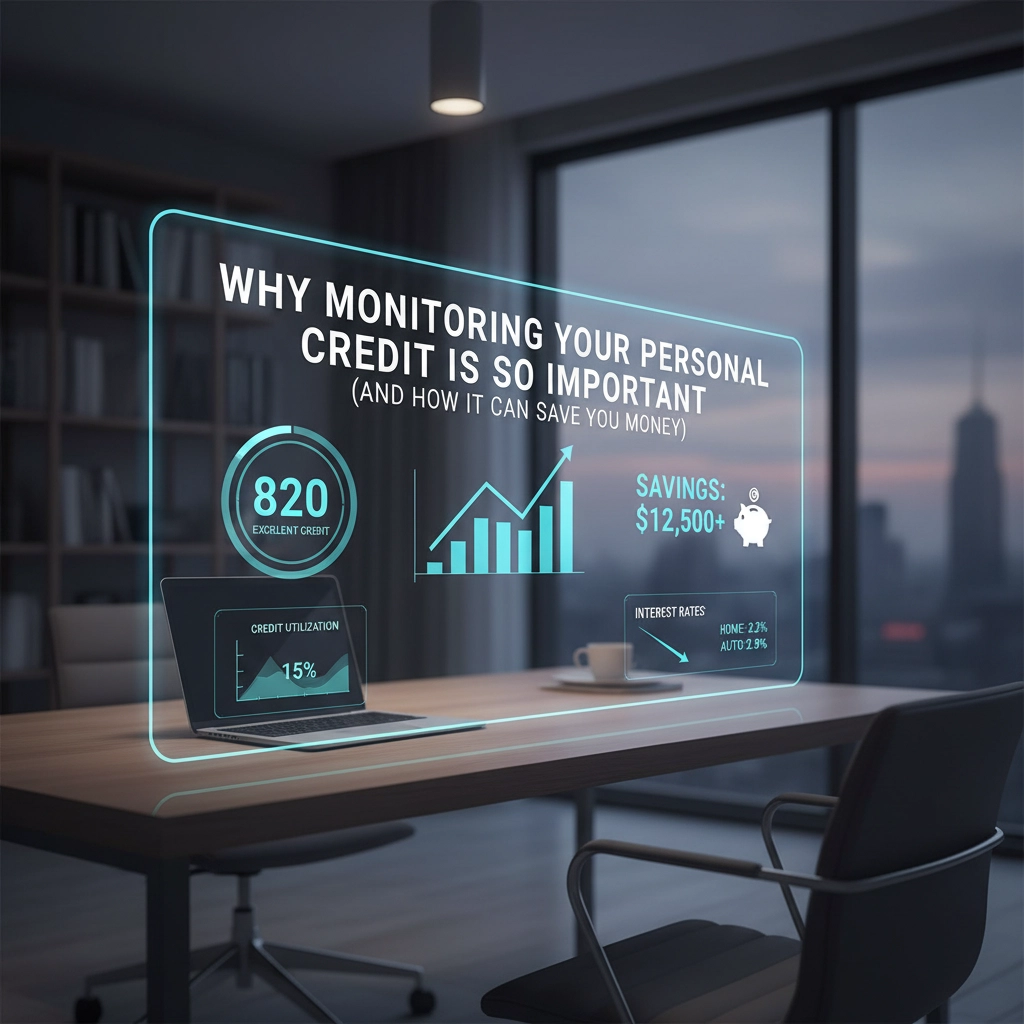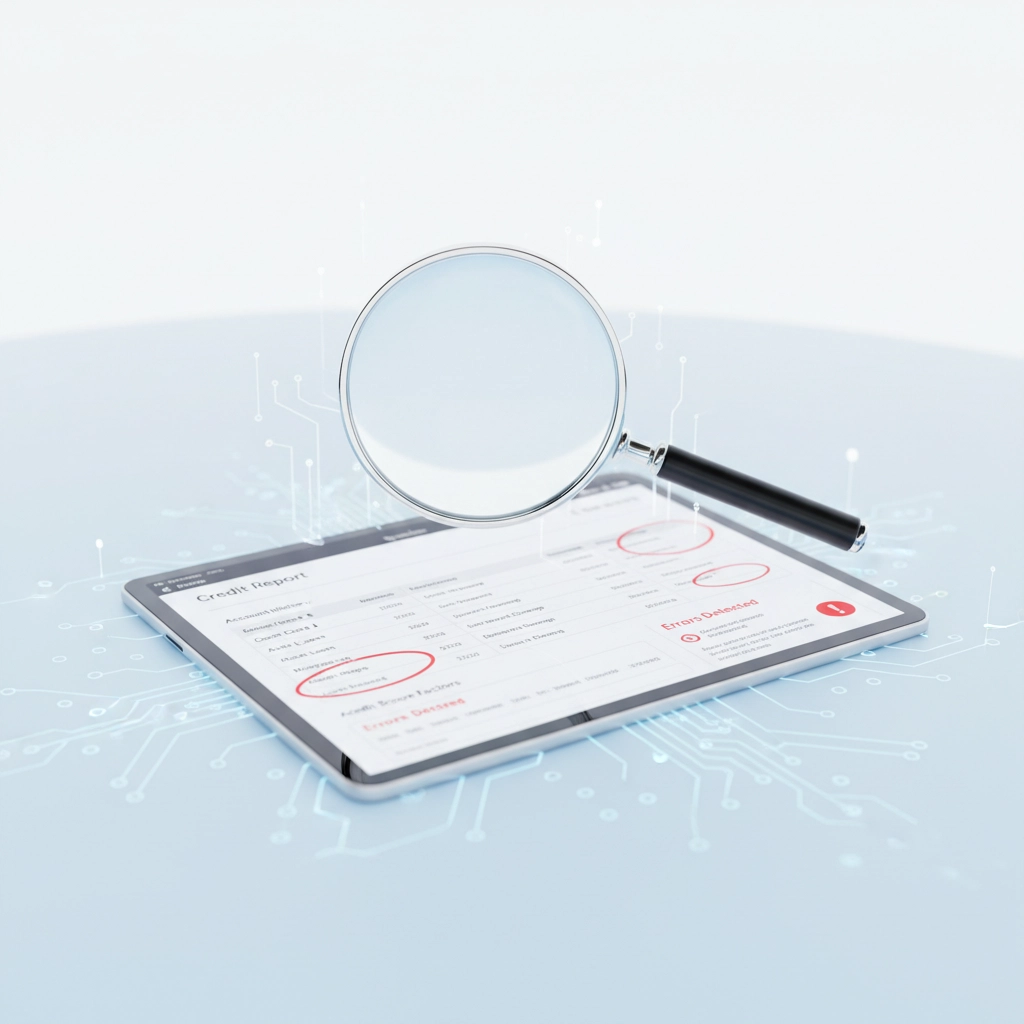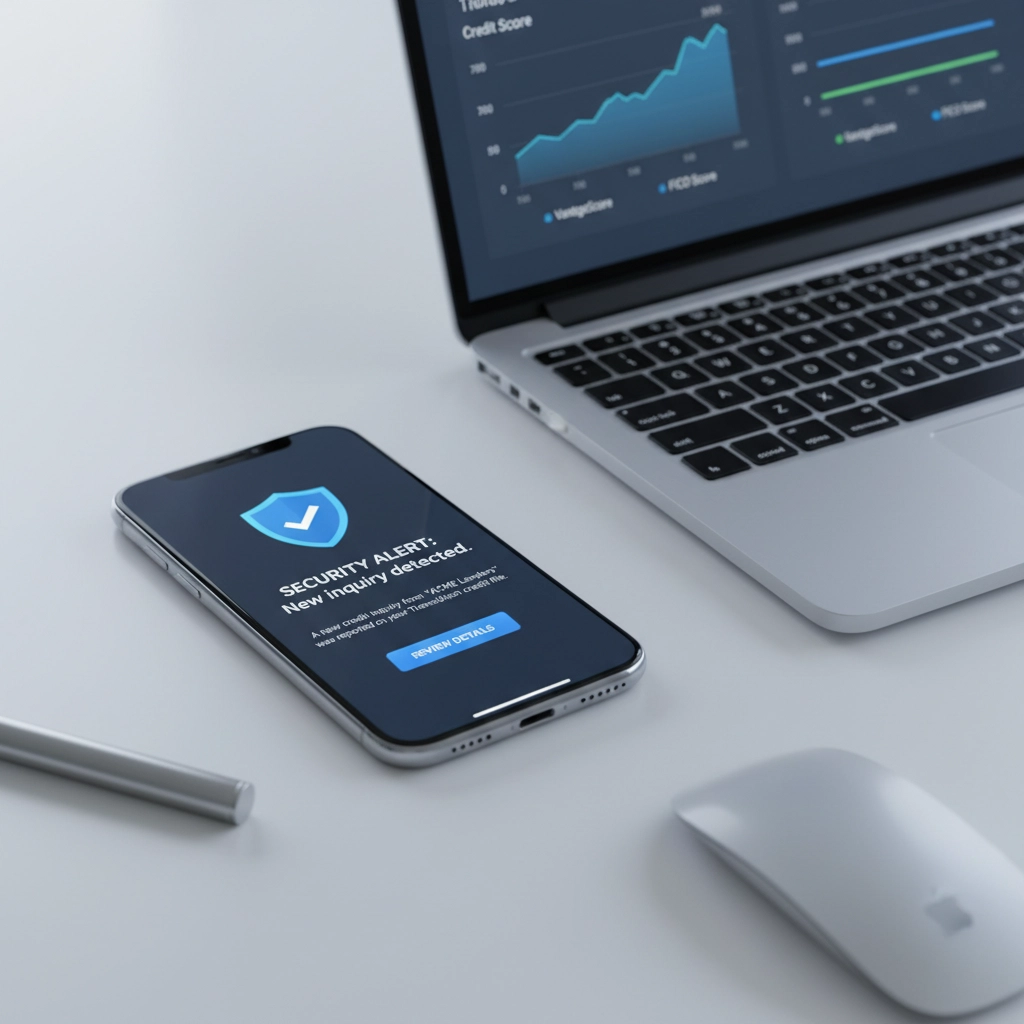Why Monitoring Your Personal Credit is So Important (And How It Can Save You Money)

Let's be honest, most of us don't think about our credit until we need it. You're cruising along, living your life, and then BAM! You're ready to buy a house, get a new car, or maybe even just sign up for a new credit card, and suddenly your credit score matters more than your morning coffee.
But here's the thing: waiting until you need good credit to start paying attention to it is like waiting until you're sick to start eating healthy. It's reactive instead of proactive, and it can cost you big time.
So why should you care about monitoring your credit? Because it's one of the smartest financial moves you can make, and it can literally save you thousands of dollars. Let's dive into exactly how.
The Hidden Dangers Lurking in Your Credit Report
Think your credit report is accurate? Think again. Studies show that millions of credit reports contain errors, and some of these mistakes could be costing you serious money without you even knowing it.
Here's what could be hiding in your credit report right now:
- Payments marked as late when you actually paid on time
- Accounts that don't belong to you (hello, identity theft!)
- Old debts that should have fallen off your report years ago
- Incorrect personal information that could mix up your file with someone else's
- Closed accounts still showing as open

Every single one of these errors can drag down your credit score. And a lower credit score? That's money straight out of your pocket every time you need to borrow money.
Your First Line of Defense Against Identity Theft
Let's talk about something scary but real: identity theft is exploding. The Federal Trade Commission received nearly 1.4 million reports of identity theft in just one year, that's more than double from 2019.
When someone steals your identity, they don't just take your information, they take your financial future. They open credit cards, take out loans, and rack up debts, all in your name. By the time you find out, the damage could be devastating.
But here's your superpower: regular credit monitoring acts like a security system for your financial identity. When you check your credit reports regularly, you'll spot suspicious activity faster than a fraud alert system ever could.
Look for these red flags:
- New accounts you didn't open
- Credit inquiries from companies you've never heard of
- Address changes you didn't make
- Employment information that's wrong
The sooner you catch identity theft, the less damage it can do. And trust me, preventing identity theft is way easier (and cheaper) than cleaning up the mess afterward.
How Credit Monitoring Saves You Real Money
Now let's get to the good stuff, how monitoring your credit puts money back in your pocket.
Lower Interest Rates = Massive Savings
Your credit score is basically your financial report card, and lenders use it to decide how much risk you represent. The better your score, the less risky you look, and the less they'll charge you in interest.
Here's a real-world example: Let's say you're buying a $300,000 house with a 30-year mortgage. With excellent credit (760+ score), you might qualify for a 6.5% interest rate. With fair credit (620-659 score), that rate could jump to 8% or higher.
That difference of just 1.5% costs you over $90,000 more over the life of your loan. Ninety thousand dollars! That's not pocket change, that's life-changing money.
The same principle applies to:
- Auto loans (could save you $2,000-5,000 per car)
- Credit cards (difference between 15% APR and 25% APR)
- Personal loans (could mean thousands in interest savings)

Avoid Deposits and Fees
Good credit isn't just about loans. It affects almost every aspect of your financial life. When you have better credit, you can:
- Skip security deposits on apartments and utilities
- Avoid deposit fees for cell phone plans
- Get better rates on insurance (yes, some insurers check credit!)
- Qualify for premium credit cards with cash back and rewards
These might seem like small things, but they add up. Avoiding a $500 apartment deposit here, a $200 utility deposit there: it all stays in your bank account where it belongs.
Preparing for Life's Big Moments
Life has a way of throwing curveballs when you least expect them. Maybe you'll decide to buy a house next year, or your car will finally give up the ghost, or you'll want to start a business.
When opportunity knocks, you want to be ready with great credit.
But here's the catch: you can't improve your credit score overnight. It takes time: usually several months to see significant improvements. If you wait until you need good credit to start working on it, you might miss out on your dream home or pay thousands more than you need to.
By monitoring your credit regularly, you can:
- Track your progress as your score improves
- Identify areas that need work before they become problems
- Celebrate wins when negative items fall off your report
- Stay motivated to keep making smart financial choices
Your Credit Health Check: What to Look For
Think of monitoring your credit like getting a regular health checkup. You're not looking for problems: you're making sure everything is running smoothly and catching any issues early.
Here's your credit monitoring checklist:
Monthly:
- Check your credit score through your bank or credit card company
- Look for any sudden drops or improvements
- Review recent credit inquiries
Quarterly:
- Pull one of your three free annual credit reports (rotate between Experian, Equifax, and TransUnion)
- Verify all account information is accurate
- Check that closed accounts are marked as closed
When Major Changes Happen:
- After paying off a loan or credit card
- When applying for new credit
- If you've been a victim of fraud or data breach

Taking Control: Your Next Steps
Ready to take control of your credit? Here's exactly what to do:
Step 1: Get Your Baseline
Visit annualcreditreport.com and pull all three of your credit reports. This is 100% free and won't hurt your credit score. Think of this as your starting point.
Step 2: Set Up Monitoring
Many banks and credit card companies offer free credit score monitoring. Sign up for alerts so you'll know immediately if something changes.
Step 3: Create a Schedule
Put reminders in your calendar to check your credit regularly. Make it as routine as checking your bank balance.
Step 4: Document Everything
If you find errors, keep detailed records. You'll need this information when you dispute inaccuracies.
Step 5: Take Action
Don't just monitor: act on what you find. Dispute errors, pay down balances, and make smart credit decisions.
When to Get Professional Help
Sometimes, dealing with credit issues can feel overwhelming. Maybe you've found multiple errors, or you're dealing with complex situations like identity theft or collections accounts. That's when professional credit repair services can be invaluable.
A legitimate credit repair company can:
- Help you understand complex credit laws
- Handle disputes with credit bureaus on your behalf
- Provide personalized strategies for your specific situation
- Save you time and reduce stress
The key is choosing a reputable company that follows federal regulations and has your best interests at heart.
The Bottom Line: Your Financial Future Starts Now
Monitoring your credit isn't just about numbers on a report: it's about taking control of your financial future. Every error you catch, every fraudulent account you stop, every point your score improves puts money back in your pocket and opens doors to better opportunities.
You don't have to be a financial expert to monitor your credit effectively. You just need to be consistent, stay alert, and take action when needed. Your future self will thank you when you're getting approved for that dream home at a great interest rate, or when you catch identity theft before it ruins your finances.
Remember: your credit is one of your most valuable financial assets. Guard it, nurture it, and watch it work for you instead of against you.
Start today. Check your credit score, pull a credit report, and take that first step toward better financial health. You've got this!
#CreditRepair #PersonalCredit #CreditMonitoring #FixMyCredit #CreditHealth
